Malala Yousafzai's family is the cornerstone of her influential status, symbolizing peace and bravery for millions. Her father, a steadfast supporter throughout her journey, has joined forces with Malala's husband Asser to provide even stronger backing for her advocacy efforts. This united front ensures Malala has a robust support system, both personally and professionally, as she continues her mission for global education and women's rights.
Toor Pekai, Malala's mother, inspires the young activist to continue to challenge traditions in pursuit of a more democratic future for all young girls living under the constraints of "misinterpreted" Quran-Islam while her siblings, Atal and Khushal, keep cheering and inspiring her.
In this article, we will show that Malala's legacy would not be what it is today without the support of the entire Yousafzai family.
Malala Yousafzai's Family: The question of gender and Pashtun society
Born in Mingora, Pakistan, during a time when the Taliban's influence was growing, Malala witnessed how inaction and ignorance can fuel oppression and hinder democratic progress. Her birth, at the end of the night hours, was seen by many as an inauspicious sign, as having a boy was much more favored in a traditional Pashtun society:
"When I was born, people in our village commiserated with my mother, and nobody congratulated my father... I was a girl in a land where rifles were fired in celebration of a son while daughters were hidden away behind a curtain, their role in life simply to prepare food and give birth to children."
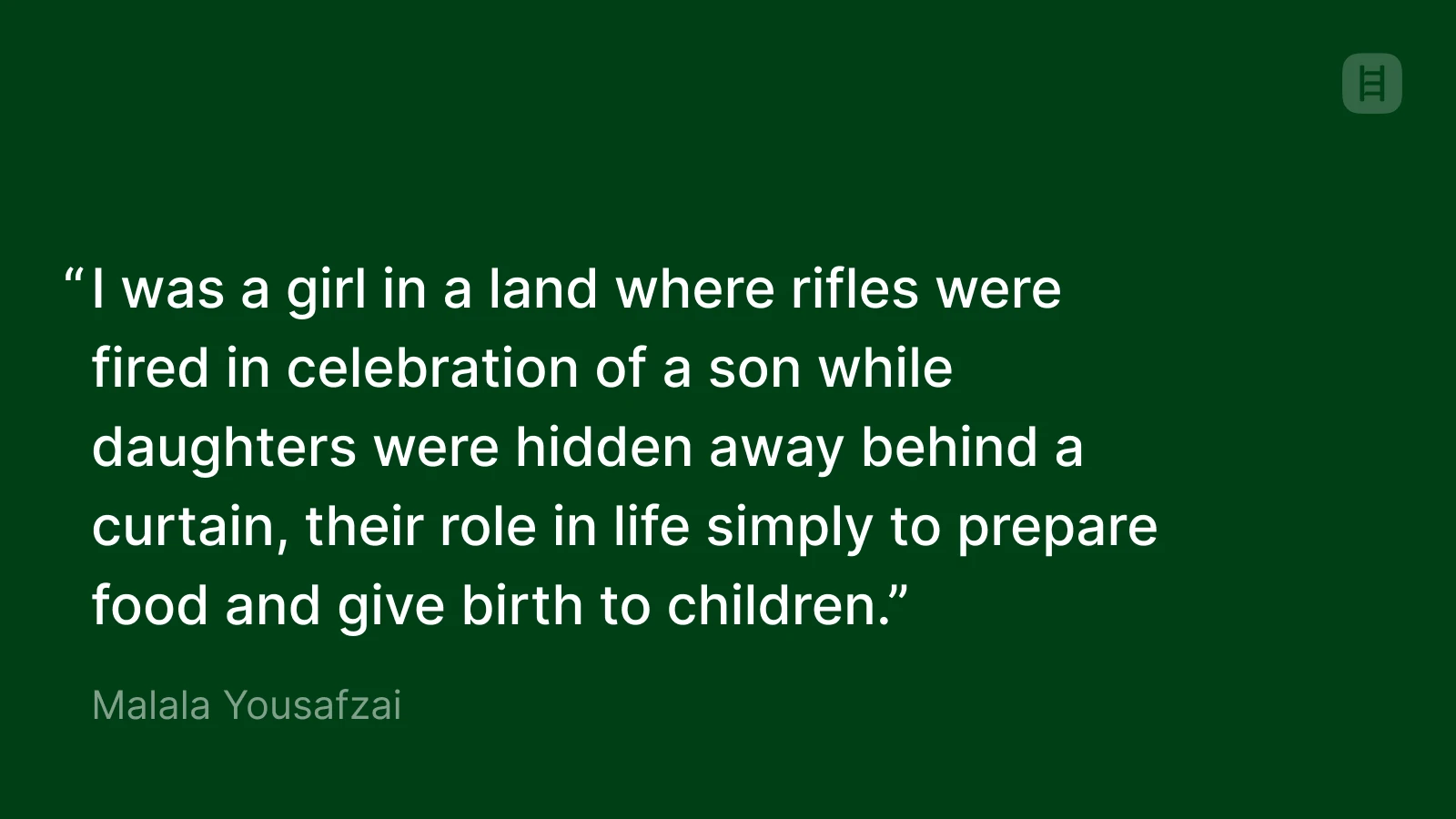
When Malala was born, her parents, Ziauddin and Toor Pekai Yousafzai were overjoyed, especially since their previous baby had been stillborn. Despite humble living conditions, they celebrated and cherished their new child. Ziauddin Yousafzai had a feeling that there was something special about her and predicted her future. That's why they chose to name her after Malalai of Maiwand, the most prominent heroine of Afghanistan. For Malala's family, Afghanistan meant as much as Pakistan, as they belonged to the Pashtun people, who were split between both countries. The combination of old Muslim culture and family resilience eventually shaped Malala's personality into the strong young activist she is today.
The Yousafzai family: One team against the Taliban extremists
In her autobiography "I Am Malala: The Story of the Girl Who Stood Up for Education and Was Shot by the Taliban," we see how Malala's family was deeply affected by the actions of extremists in Pakistan, Afghanistan, and the U.S. Their Islamic community, burdened by strict rules and old traditions, with many choosing to stay submissive to corrupt politicians, could have divided the Yousafzais. Instead, it only strengthened and united the immediate family of Malala: her parents, two younger brothers, Khushal and Atal, and herself.
Sometimes, one of the brothers would say that Malala might have been the bravest schoolgirl for everyone else, but for him, she was the cruelest as she didn't want to share her iPod. Being silly with each other was always typical for their entire family, as they would often tease and cheer one another to get through difficult times. In times of danger, they would also plan escape routes when they suspected that the Taliban might break into their house at any moment:
"My mother was always trying to think up plans for what she would do if the Taliban came. She thought of sleeping with a knife under her pillow. I said I could sneak into the toilet and call the police. My brothers and I thought of digging a tunnel. Once again I prayed for a magic wand to make the Taliban disappear."
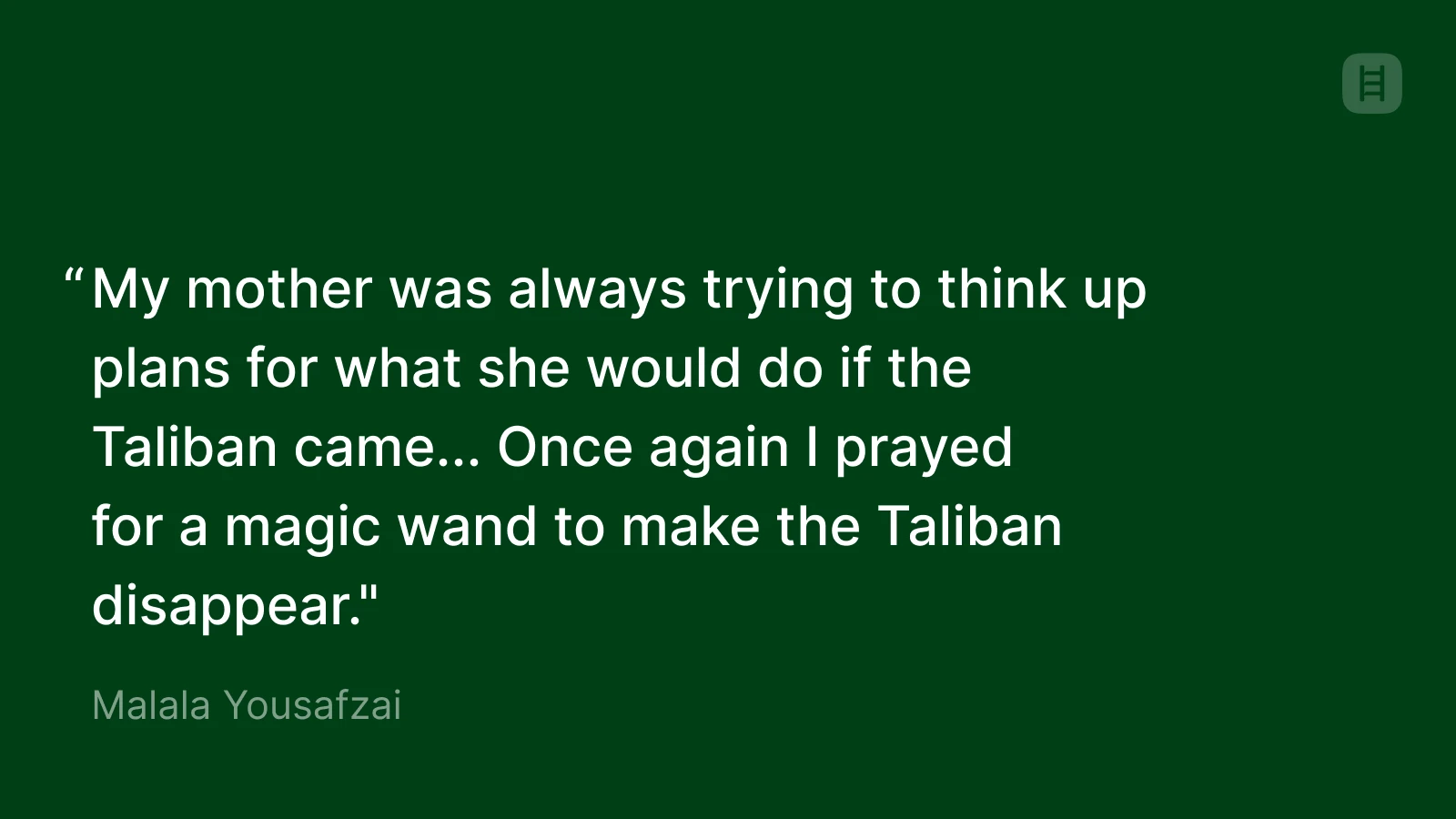
Whether it was Pakistani or British soil, the Yousafzais stayed as one. If it were not for that, Malala admits she would have doubtfully grown into the youngest Nobel Peace Prize winner (she won the award together with Kailash Satyarthi, an anti-child labor activist from India). The same goes for her being honored as the youngest United Nations Messenger of Peace.
Currently, Malala's family, living in Birmingham, has grown since she married Asser Malik, a young Pakistani man whom she calls her partner, not just her spouse. He fully supports his wife's advocacy work and operations of the Malala Fund.
Malala Yousafzai's father: Malala's first and foremost support
Ziauddin Yousafzai, Malala's father, hails from the Shangla district in Pakistan's Swat Valley. With a background in education and activism, he has been a steadfast advocate for social justice and human rights. Ziauddin received his education from Jahanzeb College in Swat and later established the Khushal School, where he promoted a progressive and inclusive approach to education.
As an educator and activist, Ziauddin has continuously encouraged the Pakistani Government to develop new programs and policies to ensure that every child, especially girls’ education, has access to quality education. His efforts have provided a strong foundation for Malala's activism and spurred international collaborations and campaigns, such as the Malala Fund, which supports education projects in vulnerable communities. He said:
"Education is power. It is just like a light in complete darkness."
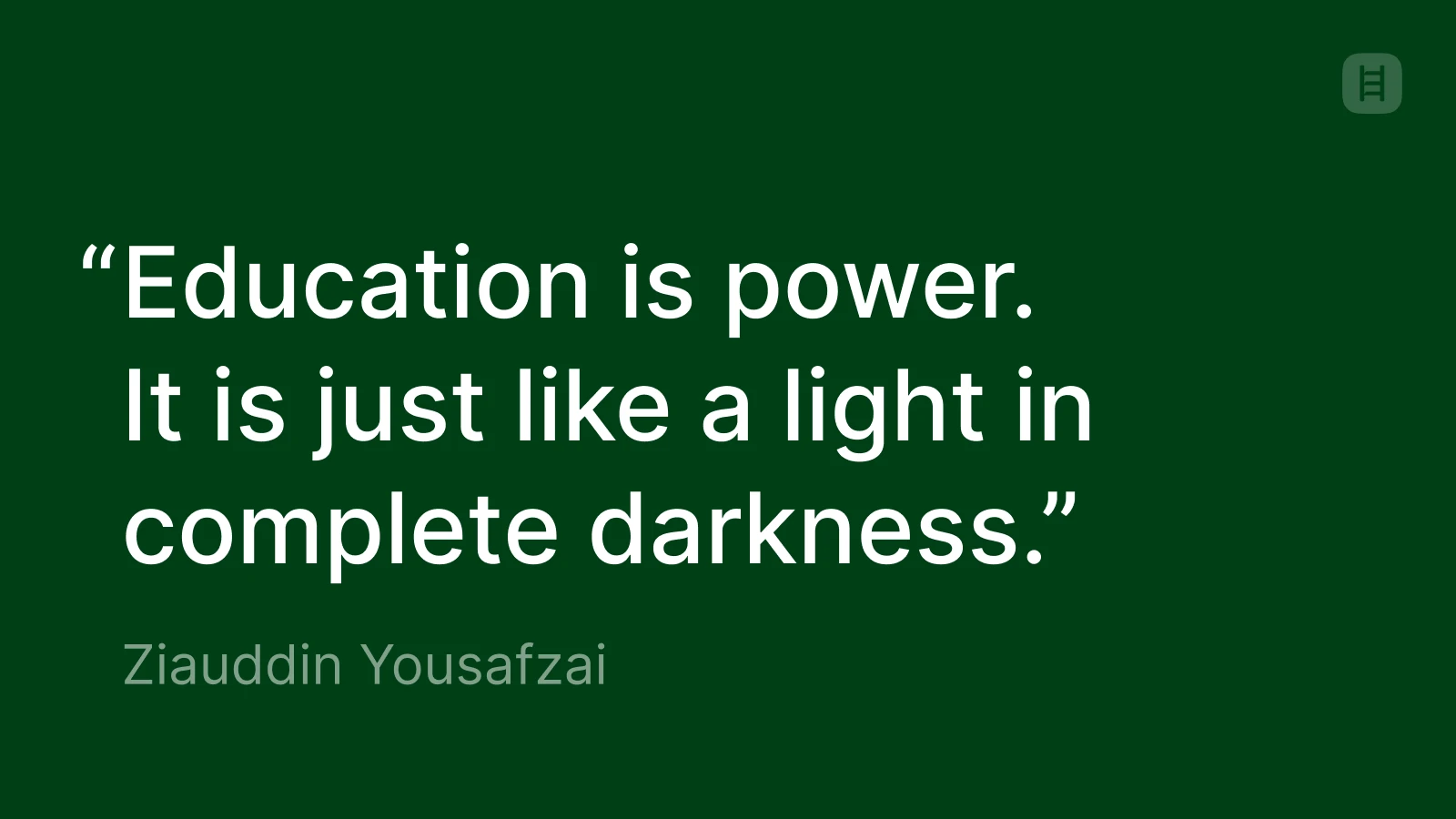
In her autobiography, Malala mentions how her grandfather calls her father "a falcon":
"My grandfather wrote his speeches and he almost always came first, gaining a reputation locally as an impressive speaker. My father had turned his weakness into strength. For the first time, Baba started praising him in front of others. He'd boast, 'Ziauddin-is a shaheen' - a falcon - because this is a creature that flies high above other birds."
Indeed, like a falcon, Ziauddin Yousafzai has always been a determined man, aspired to see their native Pakistan become a democracy one day, even though he had been raised in a strict family of a high school theology teacher.
"I want to say to the world: you must try to get an education because it is very important. If the new generation is not given pens, they will be given guns by terrorists."
When Malala was delivering a speech to the United Nations Youth Assembly, she passionately shared a message that reflected her and her father's years of hard work as activists, which had made their family a target of the Taliban.
"The extremists are afraid of books and pens. The power of education frightens them. They are afraid of women... They think that God is a tiny, little conservative being who would point guns at people's heads just for going to school. These terrorists are misusing the name of Islam for their own personal benefit... It is the duty and responsibility to get education for each child, that is what it says."
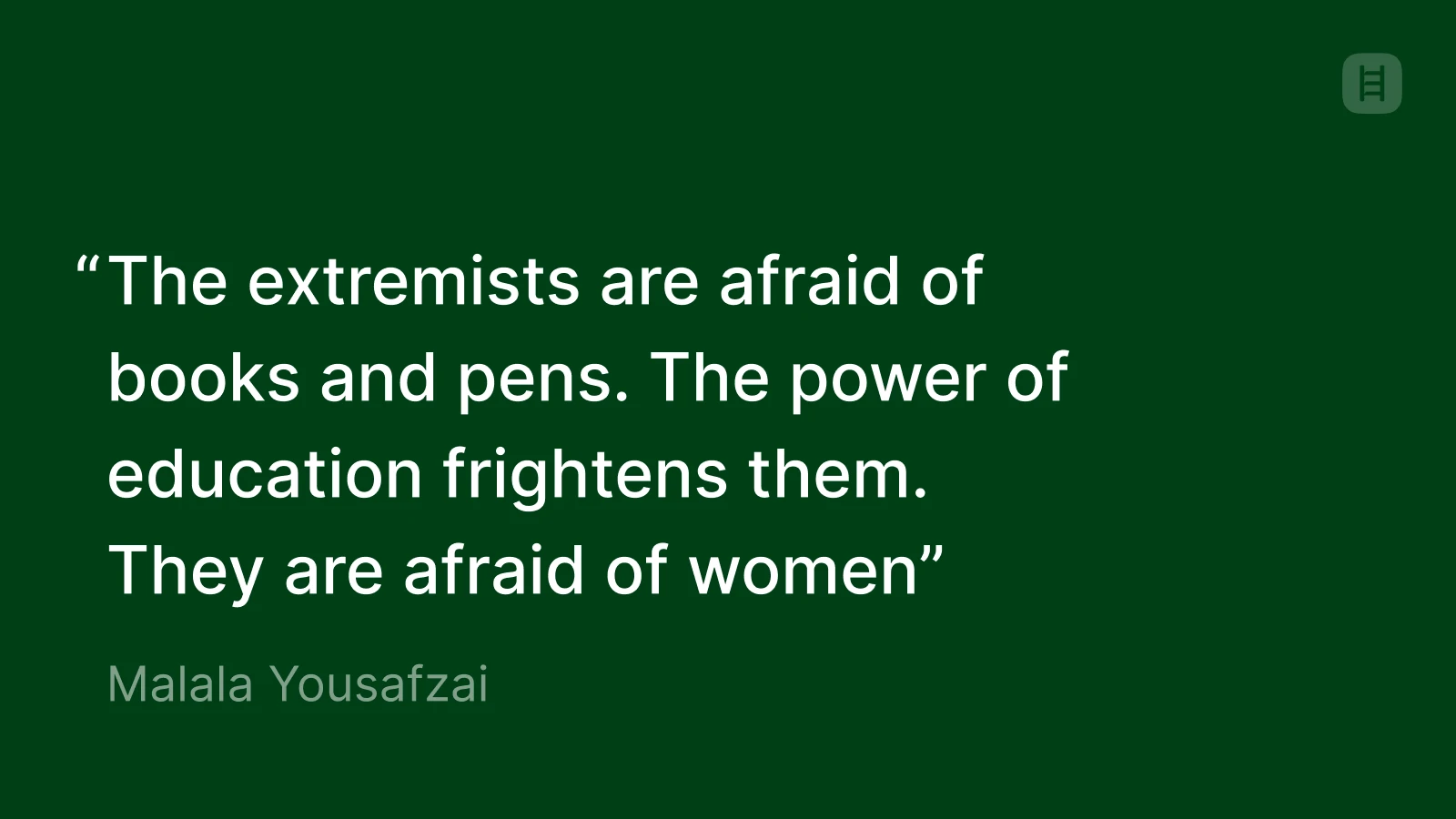
Malala's mother: The one behind her wisdom as a young Pakistani woman
The attack on Malala, when a gunman assaulted her on the school bus, exemplified the Taliban's determination to prevent girls from attending school. This motivated her father to constantly remind her that she was "free as a bird" and should not be intimidated by the Taliban's threats and propaganda. Meanwhile, her mother, who had willingly left girls’ school as a child due to cultural pressures promoting early marriage, realized the crucial importance of education for young Pakistani girls. She understood that education was essential for supporting their families and navigating the corrupt practices of the government.
"Don't wake up like me and realize what you missed years later."
What Malala seemed to learn from her mother is true devotion. In Pakistan, this was reflected in her discipline in following the Islamic tradition of prayer. In England, it was demonstrated through her bravery to break free from the past and embrace international media and academic opportunities. What is even more precious is that Toor Pekai also showed Malala how valuable it is to break the chains of an obsolete view of Islamic marriage and have your husband's respect as he consults you on everything:
"My father shares everything with her, telling her about his day, the good and the bad. She teases him a lot and gives him advice about who she thinks is a genuine friend and who is not, and my father says she is always right. Most Pashtun men never do this, as sharing problems with women is seen as weak. 'He even asks his wife!' they say as an insult. I see my parents happy and laughing a lot."
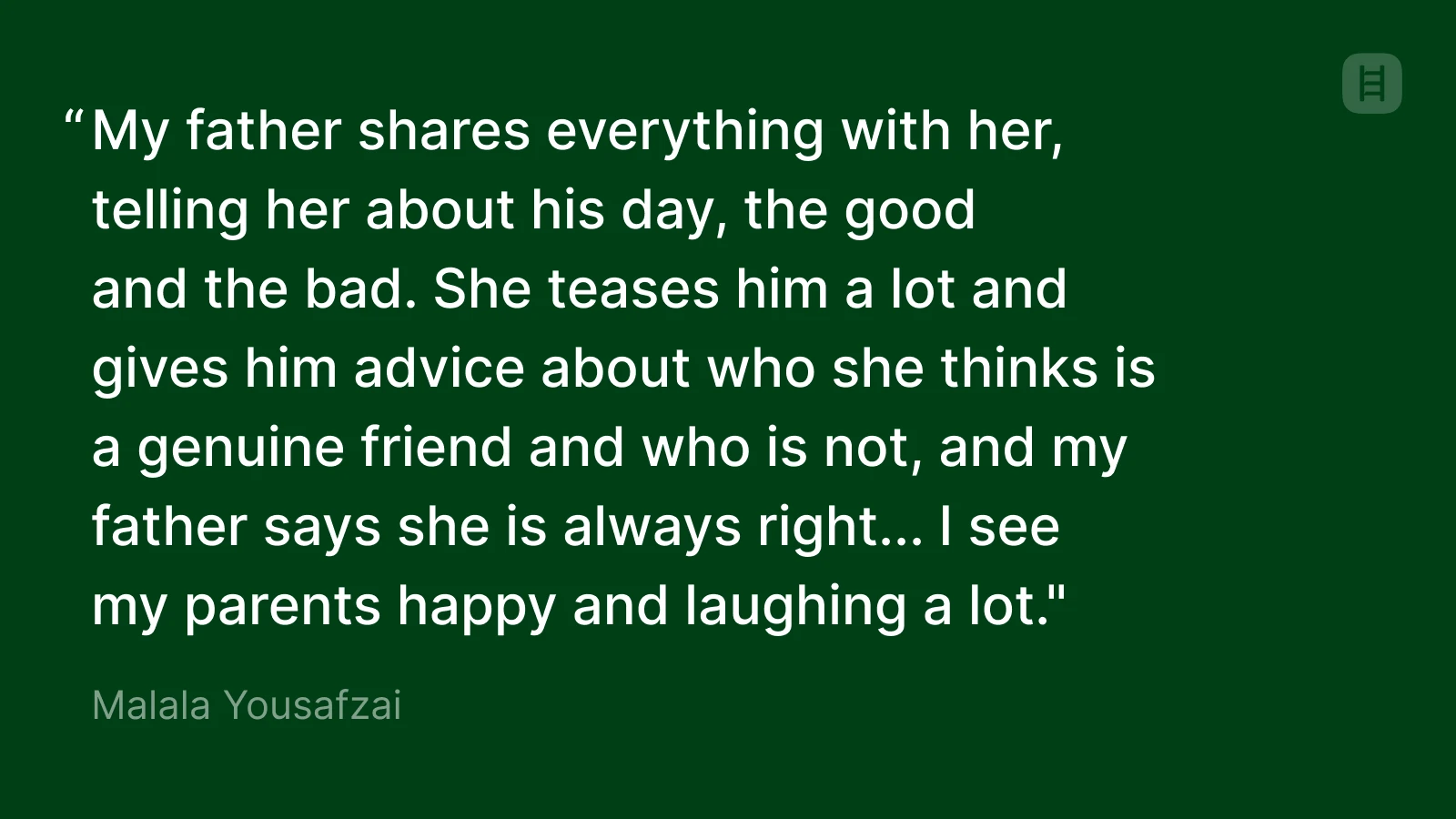
Malala’s siblings: Secret of each other’s strength to overcome life challenges
In the U.K., each member of the Yousafzai family had the opportunity to grow and develop a deeper appreciation for education and its transformative power. Malala, Khushal, and Atal attended different schools, while their mother enrolled in a language center five days a week to improve her English reading, writing, and speaking skills. She was working hard to catch up to her family members, who were already advanced in foreign languages.
After moving to the U.K., Malala's siblings managed to balance seriousness and playfulness. Joyfulness was a part of their nature from an early age, despite the challenging circumstances they faced. For instance, when snow fell, the three of them teamed up to build a snowman in front of their house. Although they sometimes annoyed each other, they shared a deep and loving bond.
"My brothers have settled in, though I fight with Khushal as much as ever. Atal makes us all laugh. He uses very dramatic language and is so full of energy that it makes us all tired."
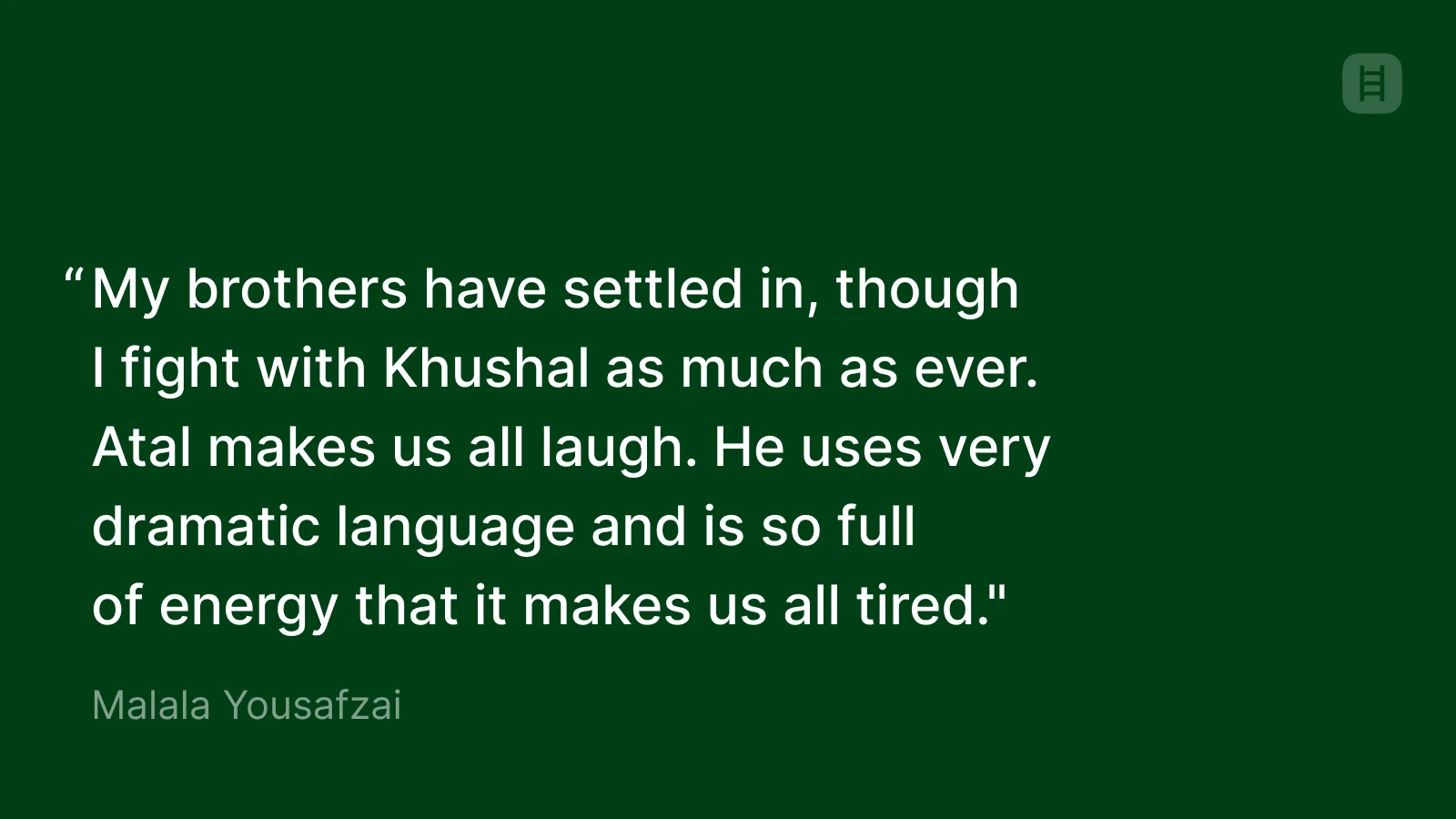
Atal: Jokes and seriousness
In the book, Atal arises as a very energetic youngest sibling who tries to distract his sister from always being too serious. Once during their family journey to the Arabian Sea, Malala was standing next to the water and thinking how the Quran doesn't actually dictate a woman to be dependent on a man. However, she kept those thoughts to herself and just said to her brothers and parents in quite a serious tone that she would love to cross the ocean. Meanwhile, Atal, as always, was right there to lighten up the mood:
"Forget all that! We're at the beach and I want to go for a camel ride!"

At the same time, Atal was the one whom Malala saw one day busy digging a grave in their garden, as children were not playing hide-and-seek but Army vs. Taliban.
Malala always acknowledged the immense inspiration and encouragement she received from her relationship with her siblings. It seems that Atal was the one behind her agreeing to participate in HBO's "Friends Reunion" episode when Malala mentioned that some of her favorite scenes are between Monica and Ross, the characters of the brother and the sister on the show.
Khushal: Learning and supporting
Malala's brother Khushal was named after their dad's school. However, unlike his sister and father, Khushal did not initially prioritize education. The boy was not even trying to hide his desire not to attend school as a child. Unable to stand it, Malala has turned into "an angry motivator," insisting on how lucky the brother is to be able to learn:
"When my brothers' schools reopened after the winter break, Khushal said he would rather stay at home like me. I was cross. 'You don't realize how lucky you are!' I told him. It felt strange to have no school."

Relationships with Khushal seemed to refine Malala's attitude toward education and inspired her current initiatives at the Malala Fund. She advocates and sponsors tutoring for deprived children using the most modern means of education, mainly digital, and guarantees equal access to studies for both genders.
Recently, Malala congratulated Khushal in a personal Instagram post, "wishing him all the best" in his affairs and academic pursuits yet also reminding an eternal truth:
"The key to success for a brother is listening to your sister."
Meanwhile, Khushal posted a very wise message on his LinkedIn. The message reflects the kind of responsible and wise person he has become. He seems to attribute this to what he has learned from his Nobel awardee sister, as she continues her humanitarian work despite recent criticism from the international public:
"Approval from others is extremely superficial and fleeting. One day you are a hero, and the next, a villain. The best approach is to keep the intentions pure and do good, regardless of the narratives trending around you. It’s ok to be misunderstood. It’s life!"
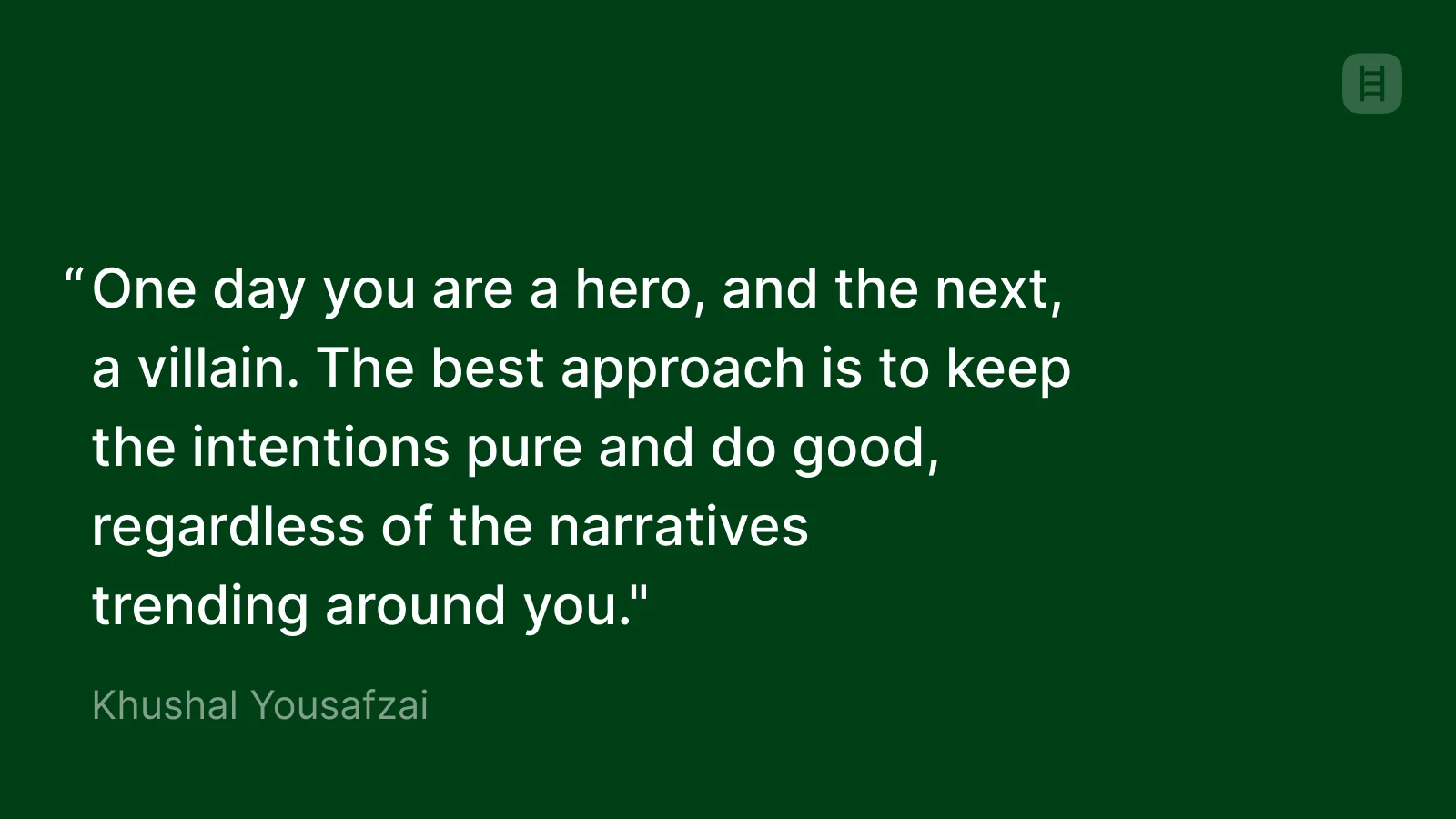
The journey goes on: Malala's family and their continuing mission
The Yousafzai family continues to drive positive change today, promoting education and women's rights just as they did in Pakistan. With Toor Pekai by his side and an honorary law degree, Ziauddin continues to expose the deceitfulness and corruptness of the Taliban, pointing out that they had broken the Doha Agreement of 2020 when this terrorist group solemnly promised to respect the rights of the women who depended on their will.
Malala and her husband Asser attend public events like Broadway performances to promote female rights through their presence at significant public cultural occasions. The Malala Fund continues to sponsor the "Education Champions Network" to tackle the problem of girls being prevented from school.
Following their return to Pakistan in 2022 after the devastating floods, Malala and Ziauddin remain steadfast in their efforts to advocate the democratic values of their homeland on a global scale and support it with humanitarian help when its people need it the most. Their tireless work to advance learning and champion social causes continues to play a pivotal role in fostering peace worldwide.
More motivational biographies and books on activism on Headway
Looking for compelling life stories that inspire action and positive change? Let Headway be your guide.
Get ready to grow into an activist successfully working under pressure with "12 of the Best Presidential Biographies Ever Written," including "Theodore Rex" by Edmund Morris and "American Lion: Andrew Jackson in the White House" by Jon Meacham.
If you want to be as brave as Malala, it's essential to take care of your inner self and recognize challenges as opportunities. Our Headway Team recommends reading some of the "30 books before 30", like "All About Love: New Visions" by Bell Hooks to learn to achieve goals and focus on what's important in life, with family among the top priorities.
Headway's book summaries may empower you and inspire you to support Malala's mission for education.







